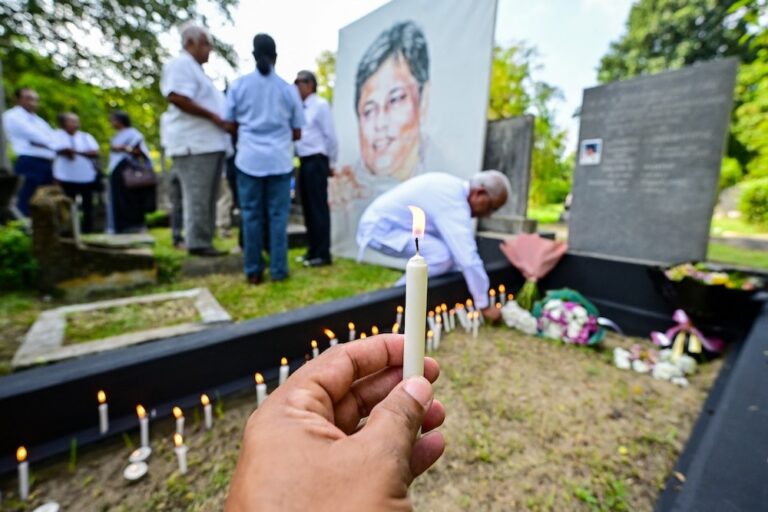(FMM/IFEX) – The following is an FMM press release: Restrictions placed on NGOs in military-controlled areas The Free Media Movement notes with grave concern the news regarding the restrictions to be placed on NGOs in areas of the Eastern province that have recently come under government control. “The Daily Mirror” report of 26 July 2007 […]
(FMM/IFEX) – The following is an FMM press release:
Restrictions placed on NGOs in military-controlled areas
The Free Media Movement notes with grave concern the news regarding the restrictions to be placed on NGOs in areas of the Eastern province that have recently come under government control.
“The Daily Mirror” report of 26 July 2007 referred to Eastern Security Forces Commander Parakrama Pannipitiya summoning all local and international NGOs to Vakarai, and directing them not to engage in any development activity without permission from the District Secretary. He is also reported to have called on the security forces, Police and civil administrators in the area not to permit NGOs to start projects without proper approval from the relevant government agencies.
It has always been the practice of local and international NGOs engaged in development and humanitarian work to carry out their activities with the cooperation and collaboration of local partners and government officials and institutions.
Since the resettlement of internally displaced persons (IDPs) began in Vakarai in March 2007, FMM has observed a slow and gradual process of militarization of the civilian administration in the East. The Vakarai resettlement was handled entirely by the military; subsequently, the Kokkadichoali/Pporativu resettlement was handled entirely by the Special Task Force. Officers of the civilian administration played a marginal role, except to provide dry rations, and that was only intermittently.
Since 2006, humanitarian agencies have faced repeated problems when trying to access areas where assistance was most needed. Technical and logistical problems such as visas and work permits, as well as transport passes, took up most of the agencies’ time, while they also had to negotiate each step of the way with the military in order to visit the communities they were supposed to help.
As media practitioners we have confronted a range of problems in trying to access the conflict-affected areas in order to provide balanced and unbiased reports of the situation. Journalists have been harassed and intimidated because of the nature of their reports.
FMM strongly feels that what we see happening in the East today is a forerunner of even more restrictions and limitations on the people’s right to association, information and the expression of diverse opinions. This erosion of our democratic space as members of civil society and as media practitioners carries the seed of authoritarianism within it.
FMM calls on the government to take immediate steps to redress this anomaly in democratic practice and to re-establish the dominance of the civil administration in all areas under its control. FMM also calls on civil society to join in protesting against these moves in the interests of winning a long-term sustainable peace with justice for all Sri Lankans.


